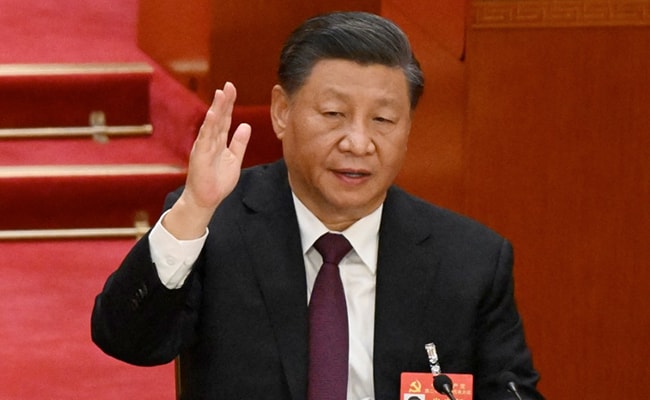In the rugged highlands of Tibet, where ancient monasteries echo with chants in a language as old as the Himalayas, a sinister transformation is underway. China’s compulsory Mandarin education policy is not merely a linguistic shift; it is a calculated assault on Tibetan identity, designed to erode the very soul of a people. Cloaked in the guise of modernisation and national unity, this policy systematically silences the Tibetan tongue, replacing it with the dominant Mandarin. As Tibetans fight to preserve their heritage, Beijing’s iron grip tightens, turning schools into battlegrounds of cultural erasure.
The roots of this policy trace back to the 1950s, when China annexed Tibet, but it has intensified in recent decades. Since the early 2000s, the Chinese government has enforced Mandarin as the primary medium of instruction in Tibetan schools, often at the expense of the native language. Official directives mandate that all subjects, from mathematics to history, be taught in Mandarin, relegating Tibetan to a mere elective or, in many cases, eliminating it altogether. Reports from human rights organisations highlight how preschool children in Tibetan regions are immersed in Mandarin-only environments, with boarding schools separating them from their families and cultural roots. This is no accident; it is part of a broader strategy outlined in China’s “bilingual education” framework, which prioritises Mandarin proficiency as a tool for “ethnic unity” – a euphemism for assimilation.
Critics, including exiled Tibetan leaders and international watchdogs, argue that this imposition is deliberate cultural genocide. The Tibetan language, with its unique script derived from ancient Sanskrit and its role as the vessel for Buddhist teachings, is intrinsic to Tibetan identity. By forcing Mandarin, China aims to sever this link. A report by Human Rights Watch detailed how Tibetan children in these schools face are denied from speaking their mother tongue, fostering an environment where cultural expression is stifled. Parents who resist are labelled as separatists, risking imprisonment or worse. This mirrors tactics used in Xinjiang, where Uyghur culture is similarly suppressed under the pretext of counter-terrorism. In Tibet, the narrative is one of development: Beijing claims Mandarin equips Tibetans for economic opportunities in a Han-dominated China. Yet, statistics reveal a different story – unemployment among Tibetans remains high, and cultural alienation contributes to social unrest.
The impact on education is profound and devastating. Tibetan students, compelled to learn in a foreign language, often struggle academically, leading to higher dropout rates. A study by the Tibetan Centre for Human Rights and Democracy notes that this policy exacerbates illiteracy in Tibetan, as children grow up unable to read their own scriptures or literature. Traditional knowledge, passed down through generations in Tibetan, is lost; folklore, medicine, and religious texts fade into obscurity. This is cultural erasure in action – not through overt destruction, but through insidious neglect.
Beijing’s defence rests on claims of inclusivity, insisting that Mandarin fosters national cohesion. But this rings hollow against the backdrop of suppressed protests and censored media. The 2008 Tibetan unrest, partly fuelled by resentment over cultural policies, was met with brutal crackdowns. Since 2021, authorities have forcibly closed numerous private schools and primary schools in monasteries that specialised in Tibetan language education. On 12 July 2024, the Chinese government has forcibly ordered the closure of the award-winning Jigme Gyaltsen Nationalities Vocational High School in Golog, Amdo. Previously in June, the Taktsang Lhamo Kirti Monastery school, which had about 500 students, faced increasingly strict restrictions until it was finally closed. Currently, there are no signs of reversal; if anything, China’s leadership under Xi Jinping has doubled down on sinicisation, viewing ethnic minorities as threats to stability.
This assault extends beyond classrooms. By dominating education, China controls the narrative of history, portraying Tibet’s incorporation as a benevolent liberation rather than occupation. Textbooks glorify Han achievements while marginalising Tibetan contributions, indoctrinating young minds into loyalty to the Communist Party. The result? A generation of Tibetans disconnected from their roots, more fluent in Mandarin slogans than in their ancestral prayers.
Yet, resistance persists. In exile, communities in India and elsewhere preserve Tibetan through schools like those in Dharamshala, where the Dalai Lama’s influence keeps the flame alive.
In the end, China’s policy is not about education; it is about domination. By forcing Mandarin and silencing Tibetan, Beijing seeks to rewrite the story of a nation, erasing its essence one lesson at a time. The world must not look away. For if Tibet’s voice is lost, it is a loss for all humanity’s diverse tapestry.

